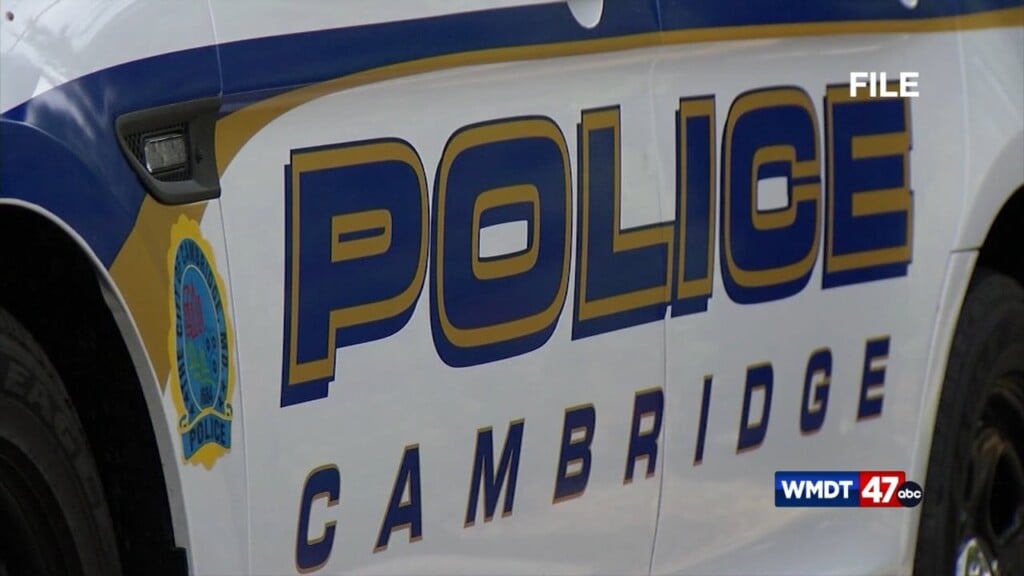2024 General Assembly First Day sees Del. Sample-Hughes lose speakership, Juvenile Crime Bill introduced
ANNAPOLIS, Md. – Wednesday marked the first day of the 2024 Maryland General Assembly session. Lawmakers highlighted a bipartisan push for public safety and juvenile crime.
Sheree-Sample Hughes Voted out of Speaker Pro-Tempore position
However, the day began with a blow to the Eastern Shore. The House voted to replace Delegate Sheree Sample-Hughes in her role as Speaker Pro Tempore, removing the only member of the Eastern Shore delegation from leadership.
Del. Sample-Hughes was also moved from her long-standing role on the Economic Matters Committee to the Judiciary Committee.
She tells 47 ABC WMDT she believes the vote comes as a consequence of her not supporting gun-reform legislation; adding that she was voting for the best interests expressed by her voters.
“Where we are today, is that I stood by my convictions and stood up for my constituents. The phone calls and the emails that I received last session on three bills that were, you know, top bills in the state, but I still had to vote my district,” Del. Sample-Hughes said. “We must continue to fight to have equality based on our geography. But, certainly, knowing that our fight is a little different when it comes to rural health when it comes to the transportation system.”
Bipartisan Juvenile Crime Package Introduced
State Senator Mary Beth Carazza, meanwhile, introduced the SB 94 Juvenile Justice reform bill, co-sponsored with Senators Ron Watson and Christ West.
The measure would forward cases, in which a juvenile commits a felony or another crime involving a firearm, to the State’s Attorney. That official would decide how to handle the case.
The legislation would also lengthen the period for which a juvenile guilty of a misdemeanor can be placed on probation. Previously it was six months. Under the bill, it would be a two-years. Probation for a juvenile found guilty of a felony for a crime, involving a firearm, would also lengthen from one year to five.
Senator Carozza also introduced an amendment to the juvenile interrogation statute, creating an exemption to the statute that prohibits law enforcement from questioning juveniles without an attorney present.
Her pre-filed bill would allow a parent in the room to serve as a substitute for the attorney. Meanwhile, a yet unfiled bill would drop the requirement for legal counsel in police detention; a term that itself is under dispute when it pertains to a juvenile believed to be involved in violence or crime involving a firearm.
“Juveniles that are involved with crimes with a firearm or violent crimes will be exempt from the juvenile interrogation prohibition, which means that law enforcement would have the opportunity to question those juveniles, who again, have been involved in violent crimes or crimes with a firearm,” Senator Carozza said.
State’s Attorney Offers Help With Bill
The bill was co-written with the input of Wicomico County State’s Attorney Jamie Dykes. She says the current restrictions have lawyers advising juveniles not to talk to police virtually every time; cutting off law enforcement’s ability to get information to solve violent crimes, including the July 5th mass shooting in Salisbury.
“It’s often disproving an alibi. It is identifying other people who are present at the time of the offense. We don’t know what we never have the opportunity to get,” Dykes said.
Dykes said juveniles are often both victims and perpetrators in violent crimes, making their comments to police crucial.
Working Across the Aisle
Senator Carozza also introduced a bill that aims to help bring up funding for tracking and intervention services for those juveniles. She hopes the bill could make a dent in the bump in violent crimes Maryland saw in 2023.
“We recognize that certain juveniles who have been involved in nonviolent activities, you know, should have these services. Let’s make sure the services are being delivered,” Senator Carozza said.
Democratic Co-Sponsor of the juvenile crime reform package, Senator Ron Watson, tells 47 ABC WMDT that he will be working to get Democratic support for the legislation. He added that there is no corner of the state that is left unaffected by juvenile crime.
“The firearms, the organized retail theft, the carjacking, all of this seeks to bring properties, values down,” Senator Watson said. “It diminishes our state, it precludes businesses wanting to come here.”
Senator Carozza tells 47 ABC WMDT that she is confident that there will be bipartisan support. She points to the language used by Maryland Governor Wes Moore as he unveiled his own legislative priorities meant to tackle crime.
Those initiatives include reforming the state’s victim compensation program, addressing recruitment and retention of law enforcement professionals, and creating a gun violence prevention and intervention office at the Maryland Department of Health.
While Governor Moore did not explicitly express support for other legislation, Senator Carozza tells us she is encouraged by his calls for accountability from juveniles statewide.
“He has said that everything’s on the table, leaving it open; that these proposals that we have put together, and that we have talked to the governor about, are something that he may support,” Senator Carozza said.
Budget Crunch
All of these focuses, as the state is facing a significant budget deficit. Governor Moore has previously stated that will mean a more conservative approach to funding current and future legislation.
Senator Carozza says in light of that belt-tightening, she is proposing a scaling back of the state’s Blueprint for Maryland’s Education Future and the state’s climate goal agendas. She says the costs cannot be borne by the counties, if the state pulls back dollars.
“For the electric cars, we do not have the infrastructure in place,” Senator Carozza said. “The state’s own budget office has estimated the costs of meeting our climate goals as over $1 billion a year.”
Senator Carozza added that she hopes to push back implementation and costs on for the climate and Blueprint goals. “If we can spread these costs out, over numbers of years, we will not be placing these burdens on our business owners,” she said.


